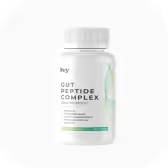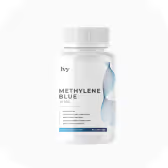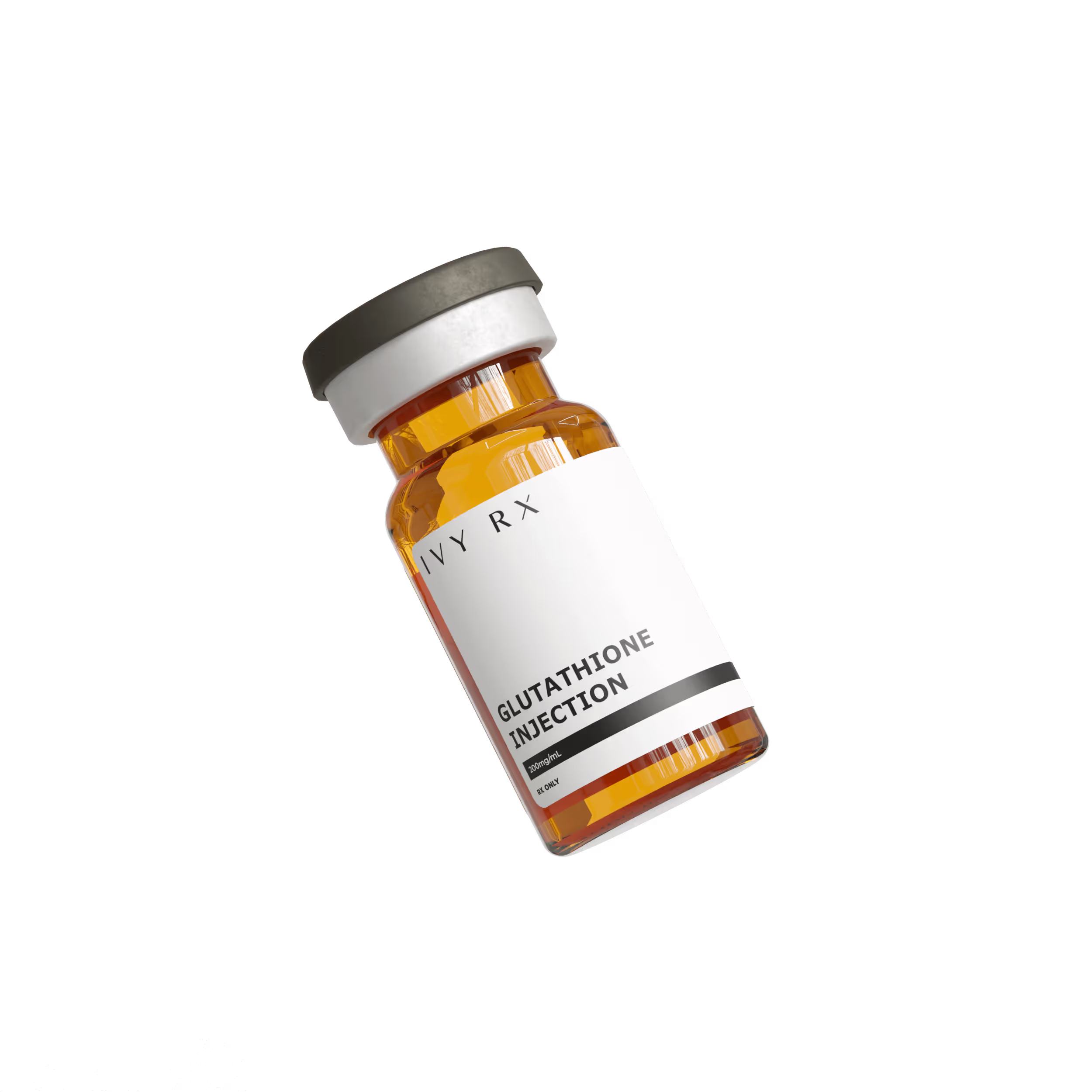Article Outline
Lose weight with Glutathione Injection


Does Glutathione Lighten Skin Permanently?
Glutathione is an endogenous antioxidant compound present in human tissues and organs. It plays various key roles in the body's functions, such as skin maintenance. Most research indicates that glutathione may aid in skin whitening. More studies are still required to understand its efficacy in the long term.
Everyone's skin is different. This means that glutathione will possibly have a different effect on every person. The effectiveness of glutathione in skin lightening depends on your skin tone, genetic makeup, and health condition.
However, you must consult your doctor to use glutathione for skin lightening. They can give you recommendations which are suitable for your case. Let's see: that does glutathione lighten skin permanently?
Does Glutathione Lighten Skin Permanently?
The ability of glutathione to lighten the skin permanently depends on the various factors explained below. It is especially effective at lightening skin tone, though, and while the effect can remain permanent, it does not always. This means the duration will vary depending on skin type, genetic factors, lifestyle choices, and which glutathione is administered (pills, injections, topical cream).
Some users with lighter complexions may lose their color after some time if they are not consistent with the product or expose themselves to the sun. However, depending on the outcome, it could last longer for others.
Tips to Keep the Effects of Glutathione for Skin Lightening Permanent
Maintain a Consistent Glutathione Intake
To maintain skin tone, glutathione intake must be continuous and thus can be taken as injections. The frequency and dosage may vary based on the type of glutathione consumed, whether in pill form, injected, or applied topically, and the severity of the skin problem. Ask your healthcare provider to establish the right dosage for you.
Consistent glutathione intake is necessary for several reasons. First, it aids in replenishing the body’s glutathione supply, which tends to diminish over various causes such as stress, pollution, and ageing. Second, it ensures a constant replenishment of antioxidants to neutralize free radicals that play a role in skin darkening. Third, it contributes to the general health and performance of the skin and accentuates skin tone and texture.
Avoid Sunlight Exposures
Ultraviolet radiation is the primary source of hyperpigmentation and can adversely affect glutathione administered for skin-bleaching procedures. When going outside, you should wear sunscreen with a high SPF, particularly during hot periods of the day.
Select a sunscreen with an SPF of 30 or higher that can protect against UVA and UVB rays. Also, do not forget personal protective apparel such as hats and sunglasses to protect your skin from UV radiation.
Too much sunlight can trigger melanin synthesis, which determines skin color formation. This can result in the formation of dark spots and skin irregularities, and the skin loses its healthy glow. Some effects require you to avoid exposing your skin to the sun so that new hyperpigmentation aren’t formed, which could darken the skin once again.
Avoid Harsh Chemicals and Exfoliants
Harsh chemical products and abrasive scrubs may cause dryness, inflammation, and an impaired skin barrier, which can dull the effects of glutathione. Use mild products instead of those containing alcohol, sulfate, parabens, and fragrances. They can cause dryness and inflammation, enhance skin sensitivity, and remove natural oils.
When selecting a lotion or cream to apply to your skin, ensure that it is suitable for sensitive skin. Substances like hyaluronic acid, aloe, and vitamin E, among others, can minimize the skin’s inflammation and restore its natural moisture and gloss.
Eat a Healthy Diet
Consuming a balanced diet containing antioxidant properties will help the body naturally produce glutathione. Ensure your meals include fruits, vegetables, whole grain foods, and lean meats. Foods rich in antioxidants, such as vitamins C and E, are recommendable, including oranges, strawberries, nuts, and seeds.
Free radicals are a significant cause of skin damage and hyperpigmentation, and antioxidants help reduce their impact. This increases the efficacy of glutathione and helps your skin become brighter and more uniform in tone.
Stay Hydrated
Hydration is vital for the skin and contributes to maintaining glutathione results. Drink lots of water to keep your skin moisturized all day. If the skin is dry, the signs of hyperpigmentation could worsen as it turns dry, flaky, and dull. By ensuring that you drink water, you benefit from improved skin texture, reduced dark spots, and better glutathione results.
The quantity of water you require daily may change according to your physical activity, weather, and general well-being. However, a standard rule of thumb is to drink at least eight glasses of water daily.
Manage Stress
Stressful conditions harm the skin and significantly decrease glutathione's efficiency. To manage stress, relaxation methods such as meditation, yoga, or deep breathing exercises should be used.
Cortisol produced due to stress stimulates inflammation and may also affect the skin barrier functions. This may cause various skin issues, including hyperpigmentation. Stress reduction is, therefore, one way of actually helping improve the skin by providing an even skin tone.
Do Not Smoke and Limit Your Intake of Alcohol
Tobacco and alcohol directly affect the skin and hinder glutathione production in the body, respectively. If you have a goal of having a lighter skin tone, then it may be appropriate to stop smoking and reduce your alcohol consumption.
Smoking also contributes to skin ageing and may lead to early signs of ageing, such as wrinkles, fine lines, and discoloration. It also restricts the blood supply to the skin, affecting nutrition and oxygen supply. Alcohol can cause skin dryness and irritation due to a loss of moisture caused by alcohol use.
Consider Additional Skincare Treatments
You could try other treatments to complement the results of glutathione, so continue reading below. Speak with a dermatologist to consider possible chemical facial peels, laser treatments, or microdermabrasion treatments. These procedures help improve the skin’s texture and discoloration and enhance its beauty.
Some skin treatments for hyperpigmentation include chemical peels, laser therapy, and microdermabrasion. However, one must ensure that such treatments are chosen for one's specific skin types and issues. A dermatologist can help you determine the most practicable option.
Conclusion
You might wonder if glutathione permanently lightens skin. Glutathione can help lighten the skin, but it takes work to maintain the results. You must take glutathione regularly, protect your skin from the sun, eat healthy food, stay hydrated, manage stress, avoid smoking and drinking too much alcohol, and try other skincare treatments. Everyone's skin is different, so talk to a doctor for advice. Following these tips lets you get the most out of glutathione and keep your skin looking its best.

Ivy RX patients
Members of Ivy RX branded medications were paid for their testimonials.
Related
Resources
5 Best Peptides for Energy & Fatigue Relief in 2026
We explain the top peptides for energy and easing fatigue, plus tips on choosing the right protocol and what to know before...

Does Microdosing GLP-1 Work? What the Evidence Shows (2026)
Does microdosing GLP-1 actually work for weight loss or appetite control? Learn what patients experience, what evidence exists, and key limitations.

Is it Safe to Take Metformin & Ozempic Together? [2026 Guide]
Wondering if you can take metformin and Ozempic together? Learn how they work, benefits, side effects, and who this combo is right for in this 2026 guide.

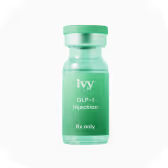




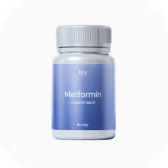

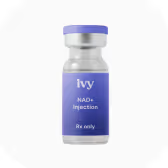

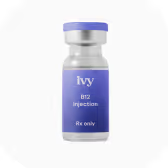
.avif)


